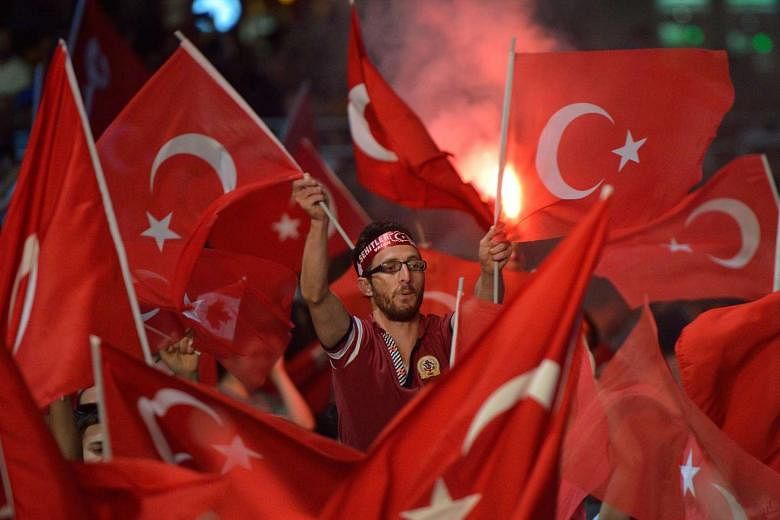ISTANBUL (Reuters) - Turkey's High Board of Education has banned all academics from travelling abroad until further notice, state-run broadcaster TRT reported on Wednesday (July 20), after an abortive military coup prompted a wide-ranging purge of state institutions.
The report, which provided no details about the ban, came a day after the board ordered the resignation of 1,577 deans at all universities across Turkey. In a separate move on Tuesday, the Education Ministry also revoked the licences of 21,000 teachers working in private institutions.
Turkey has also blocked access to the WikiLeaks website, the telecoms watchdog said on Wednesday, hours after it leaked thousands of ruling party e-mails just as Ankara grapples with the aftermath of the coup.
Around 50,000 soldiers, police, judges and teachers have been suspended or detained since the attempted coup on the weekend, and Turkey's Western allies have expressed concern over the crackdown's reach.
WikiLeaks on Tuesday released nearly 300,000 e-mails from the AK Party dating from 2010 to July 6 this year. Obtained before the attempted coup, the date of their publication was brought forward "in response to the government's post-coup purges", WikiLeaks said on its website.
The source of the e-mails was not connected to the coup plotters or to a rival political party or state, WikiLeaks said.
Founded by Julian Assange, WikiLeaks publishes leaked material, mostly from governments. In 2010, the organisation published classified US military and diplomatic documents in one of the largest information leaks in US history.
Turkey's Telecommunications Communications Board said on Wednesday that an "administrative measure" had been taken against the website - the term it commonly uses when blocking access to sites.
The government has accused a US-based Muslim cleric of masterminding the attempted coup, in which more than 230 people were killed. The cleric, Fethullah Gulen, denies the accusation.
Turkey routinely uses Internet shutdowns in response to political events, which critics and human rights advocates see as part of a broader attack on the media and freedom of expression.

